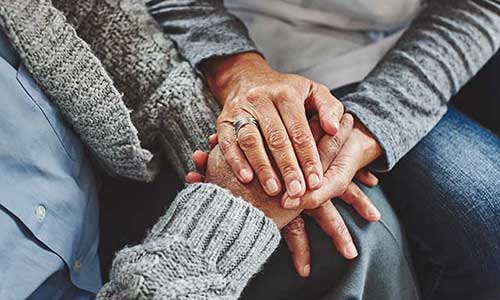Parkinson's Disease
Overview
More than one million people in the United States are living with the neurodegenerative ravages of Parkinson's disease. This disease, which typically hits people past the age of 65, is progressive, gradually stripping away motor abilities, leaving people with a slow and awkward gait, rigid limbs, tremor, shuffling and a lack of balance.
No one knows what causes Parkinson's. Most cases arise spontaneously; some are hereditary. What is known is that brain cells in the area of the brain called the "substantia nigra" die off. These are the cells which manufacture the molecule dopamine, a chemical that helps control muscle movement.
Thanks to recent advances in the lab, including the pinpointing of several Parkinson's genes, research is exploding. Scientists are now picking apart newly discovered biochemical pathways involved in the disease and uncovering new targets for therapy.
Basics
- Parkinson's Symptoms
- Parkinson's Disease Risk Factors and Causes
- Atypical Parkinsonian Disorders
- Young-Onset Parkinson's Disease
- 7 Secondary Symptoms of Parkinson's Disease
- Myths and Facts: 7 Parkinson's Disease Misconceptions
- Parkinson's Disease and Dementia
- Newly Diagnosed with Parkinson's Disease: 7 Things to Do Now
- The Genetic Link to Parkinson's Disease See More
Treatments, Tests and Therapies
Wellness and Prevention
- Caring for Someone with Parkinson's
- The Parkinson's Caregiver: 7 Ways to Help Your Loved One
- The Practical Parkinson's Caregiver: 7 Things to Make Your Life Easier
- How to Adapt Your Home If You Have Parkinson’s
- 5 Things You Think You Can't Do with Parkinson's But Can
- Can Environmental Toxins Cause Parkinson's Disease?
- Parkinson's Disease: 5 Reasons for Hope
- Your Relationship: Staying Strong Despite a Diagnosis of Parkinson's Disease See More
Parkinson's Disease and Movement Disorders Center

Our center provides compassionate and timely treatment to patients with movement disorders, such as dystonia, ataxia, essential tremor and similar conditions. But our mission goes beyond patient care excellence. By offering educational events and support groups, we empower patients and caregivers to become better partners in their health.

